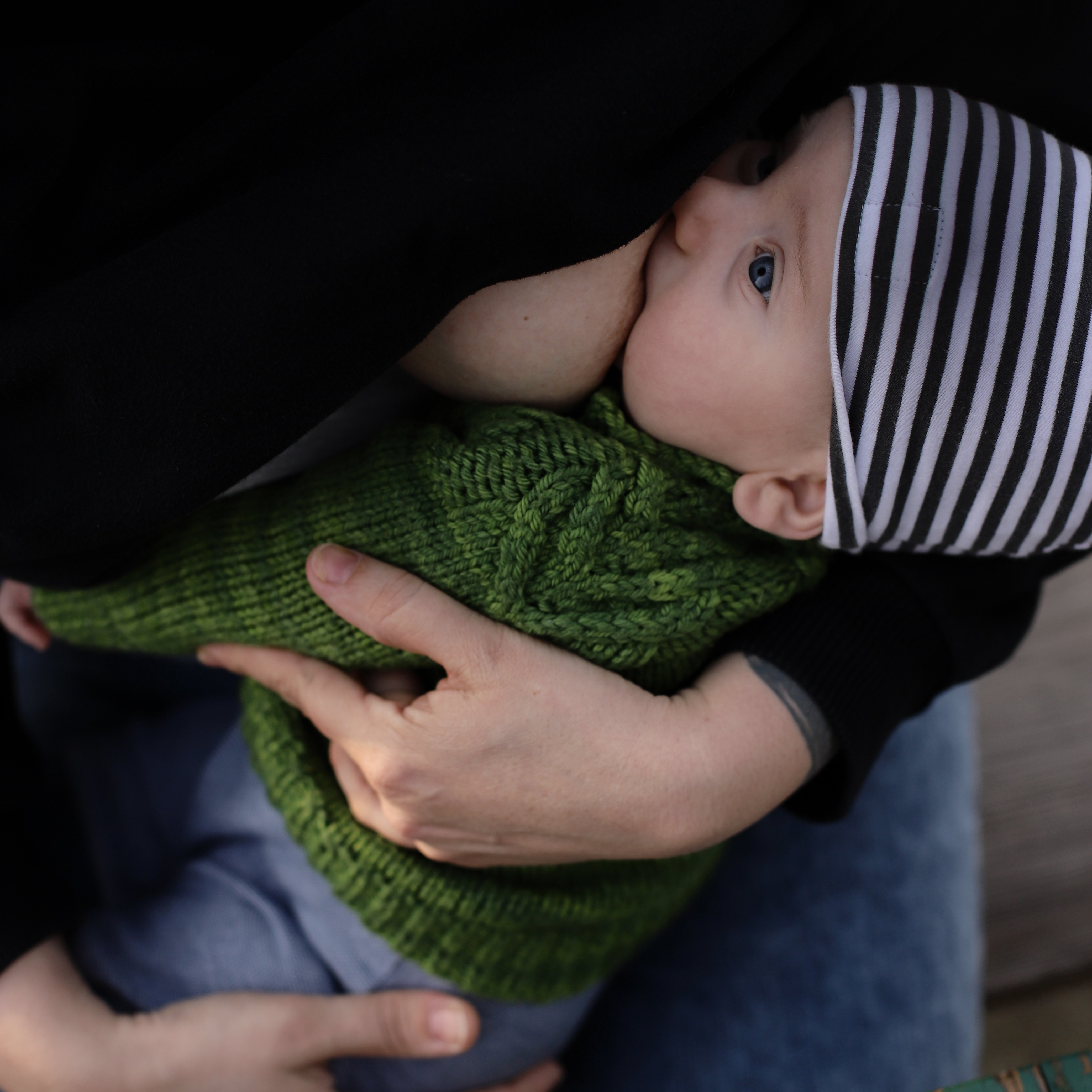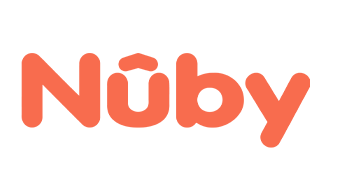Breastfeeding a teething baby can be a scary thought. Having their sharp little pearly whites that close to a sensitive area will make any parent nervous! But just because your baby is teething doesn't mean you have to stop breastfeeding.
Breastfeeding your baby while they're teething can be totally manageable, so there's no need to cut your journey short! Here, we'll explain everything you need to know about breastfeeding a teething baby, from the teething signs to look out for and our top tips for a successful feed.

Signs of teething in breastfed babies
Some babies can start teething as early as three months old, but most begin between 4-7 months old. Teething is known for causing discomfort for your child, although some babies are lucky enough to feel little to no pain at all, and plenty of parents don't notice their child teething until that first little tooth has popped through.
However, the normal signs of teething to look out for include:
- Red and swollen gums.
- Increased drooling.
- Increased biting and chewing.
- Loss of appetite.
- Sleep pattern changes.
- Irritability.
With a breastfed baby, you may notice some other signs and changes, such as:
Nipple biting
Unfortunately, a common problem teething babies and breastfeeding mothers experience is biting the breast or nipple while nursing. While this can help relieve the child's teething pain, it can be very painful for the mom.
Latching problems
Trying to latch with a sore mouth and gums might be tricky for your little one. They'll likely struggle a bit more, which may take them more time and cause discomfort for you, too.
Frequent feeds
While teething, your baby might want to feed more as it could be soothing and comforting for them, keeping their mouth busy. If you can, try and feed them as often as they want to help. But remember, breastfeeding a baby more and for longer periods can be very uncomfortable for you.
Reduced nursing
On the other hand, some babies might be so uncomfortable that they don't want to nurse at all. In this case, try to stick to your regular nursing routine, but if they continue to refuse, you may need to pump and give them their milk in a bottle, as this might be more comfortable for them.

How to breastfeed a teething baby
It's important to remember that when a baby has latched correctly, their tongue will move past their gums and cover their lower teeth to draw in the nipple, making it impossible to bite you while actively feeding. So, you shouldn’t worry too much about being bitten. Even when your child has a mouth full of teeth, they don't need to use them to get the milk.
However, if your baby has bitten you from teething discomfort or because they finished feeding, here are some tips on how best to breastfeed a teething baby.
Before nursing
Before you start nursing, we'd recommend giving them a cooling teether for them to chew on, which can relieve and temporarily numb their sore and sensitive gums. You can also gently massage their gums with clean fingers for comfort.
Expressing your milk by hand before your baby latches may help them latch more easily if they've been struggling while teething and stimulate the milk production to start feeding sooner.
During nursing
Did you know that great milk has anti-inflammatory properties? This means that it can help reduce teething pain and discomfort. While you're nursing, if you notice your baby is uncomfortable, try to adjust your position until they've settled and found a more comfortable spot.
Make sure you also pay attention to their feeding habits. When they start to slow their feeding, or if they're growing fidgety or tightening their jaw, unlatch them right away to prevent any biting. Give your child a teething toy to relieve their discomfort, and when they've had time to bite and chew, try to breastfeed again.
Remember, breastfeeding is an incredible time to bond with your baby, too, so make eye contact, talk to them, sing to them, or even give them a toy to play with, as this will distract them and offer comfort while teething, too.
If your baby bites you while feeding
If your baby does bite you, it may be a bit of a shock, and you'll likely feel a lot of pain. Try to stay calm and firmly remove your baby from your breast immediately. Give them a teething toy to chew on instead, and check your breast for any blood or broken skin. If they did bite hard enough to break the skin, wash the area with soap and water and apply some anti-biotic cream.
Even if your baby is very young and may not fully understand the consequences of their actions, make sure to calmly tell them not to bite to help them learn what they should and shouldn't do.
If your child is still hungry, you can offer the breast again, providing there was no injury. But, if they bite again or clamp down or it just doesn't feel right, remove them and find another way to comfort and feed. The best alternative may be to give them expressed milk in a bottle
There's no denying that the teething phase is a difficult one for both parents and babies, but take comfort in the fact that it doesn't last forever! Take a look at our range of quality, non-toxic teething toys designed to provide a safe and clean chewing surface for your little one.
For more tips and advice, read our blog on how to help a teething baby sleep at night.



